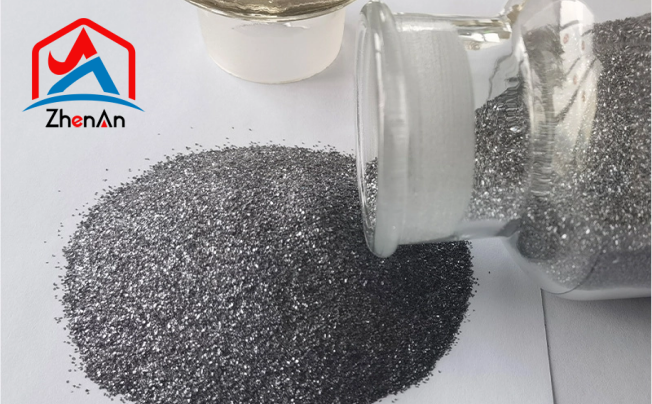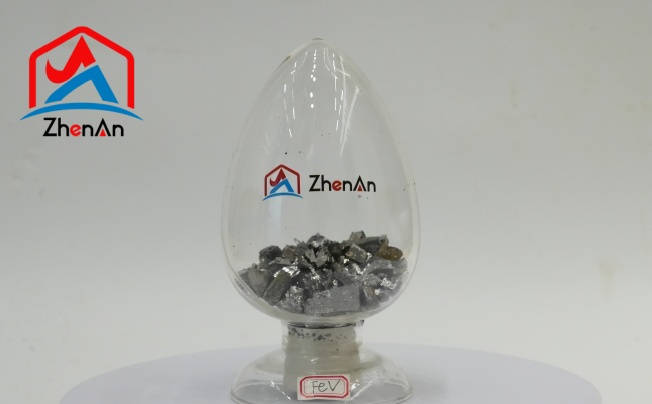BY  GENN
GENN
2024/12
Blog
How Much Vanadium Should I Take for Diabetes?
Vanadium, a trace mineral found in various foods such as mushrooms, shellfish, and whole grains, has sparked significant interest in diabetes management due to its potential benefits.
Understanding Vanadium
Definition and Sources of Vanadium
Vanadium is a trace mineral that is found in various foods such as mushrooms, shellfish, parsley, and dill. It is also present in small amounts in drinking water.
This transition metal is known for its potential role in glucose metabolism and insulin sensitivity. In addition to dietary sources, vanadium can also be obtained through supplements; however, caution should be exercised as excessive intake can lead to toxicity.
Mechanism of Action in the Body
The mechanism by which vanadium exerts its effects on the body, particularly in diabetes, is complex yet fascinating. Research suggests that vanadium may mimic the actions of insulin by enhancing insulin sensitivity at the cellular level. It has been proposed that vanadium compounds can activate key enzymes involved in glucose metabolism, thus improving the body’s ability to utilize glucose effectively.
Furthermore, vanadium may inhibit certain enzymes that contribute to insulin resistance, thereby promoting better glycaemic control. Intriguingly, some studies have indicated that vanadium may also have antioxidant properties that help combat oxidative stress—a common feature of diabetes.
By reducing oxidative damage and inflammation in cells, vanadium could potentially offer additional benefits beyond its direct effects on blood sugar levels. This dual action of improving insulin sensitivity while reducing oxidative stress underscores the potential therapeutic value of vanadium for individuals with diabetes.
Recommended Vanadium Dosage for Diabetes
When it comes to determining the recommended vanadium dosage for diabetes management, health organizations and experts provide varying guidelines. The American Diabetes Association (ADA) suggests that there is no standard recommended daily intake of vanadium for individuals with diabetes. However, some studies have indicated that a range of 10-100 mg per day may be beneficial in improving insulin sensitivity and glucose control.
It is essential to consult with a healthcare provider before incorporating vanadium supplementation into your diabetes treatment plan. Furthermore, the National Institutes of Health (NIH) acknowledges that more research is needed to establish clear dosing recommendations for vanadium in diabetes management.
Due to the scarcity of robust clinical trials on this topic, healthcare professionals often approach vanadium dosage on a case-by-case basis, considering individual factors such as age, weight, and the severity of the patient’s diabetes. Additionally, expert opinions from endocrinologists or nutritionists may offer valuable insights into tailoring the appropriate vanadium dosage based on an individual’s specific health needs.
Several factors play a crucial role in determining the appropriate dosage of vanadium for individuals with diabetes. Age is a significant consideration, as older adults may have different metabolic needs and responses to supplementation compared to younger individuals. Weight also influences dosage requirements since dosages are typically calculated based on body weight to ensure optimal efficacy without risking toxicity.
Moreover, the severity of diabetes must be taken into account when determining vanadium dosage; those with poorly controlled blood sugar levels may benefit from higher doses under careful medical supervision. Individual variations in response to vanadium supplementation further complicate dosage recommendations, necessitating personalized approaches based on comprehensive assessments by healthcare providers.
Factors like concurrent medications or underlying health conditions should also be considered when establishing an appropriate vanadium regimen for diabetic patients. Ultimately, striking the right balance between efficacy and safety requires a nuanced understanding of these influencing factors in tailoring an effective and individualized approach to using vanadium for managing diabetes.
Exploring Efficacy and Safety
The efficacy and safety of vanadium supplementation for diabetes management have been subjects of ongoing debate within the scientific community. While some studies have shown positive outcomes in terms of improved glycaemic control, others have raised concerns about potential side effects and long-term risks associated with high doses of vanadium. It is essential to consider individual factors such as age, overall health status, and any pre-existing medical conditions before incorporating vanadium supplements into a diabetes management plan.
Raising Questions for Further Investigation
Despite the intriguing findings from various studies on vanadium’s impact on blood sugar levels, there remain unanswered questions regarding its optimal dosage, long-term effects, and potential interactions with other medications. Future research endeavors should focus on conducting large-scale clinical trials to determine the most effective dosages of vanadium for different subsets of diabetic patients and to ascertain its safety profile over extended periods. By addressing these gaps in knowledge, we can gain a deeper understanding of how vanadium supplementation can best support individuals living with diabetes.
Potential Side Effects and Risks Associated with Vanadium Supplementation
- Common Side Effects
Vanadium supplementation, while potentially beneficial for managing diabetes, is not without its share of common side effects. Studies and clinical trials have reported gastrointestinal issues as the most prevalent side effects, including nausea, diarrhea, and abdominal discomfort.
These symptoms are usually mild and transient but can be bothersome for some individuals. It is essential for users to monitor their tolerance levels when starting vanadium supplementation to mitigate these common side effects.
- Risks and Interactions with Other Medicines
Long-term use of vanadium supplements may pose certain risks that warrant attention. One concern is the potential accumulation of vanadium in the body over time, leading to toxicity.
This risk underscores the importance of adhering to recommended dosages and consulting healthcare professionals regularly. Additionally, interactions between vanadium supplements and certain medications like anticoagulants or antiplatelet drugs have been noted in studies.
These interactions can affect the efficacy of both vanadium and other medications, emphasizing the need for cautious monitoring when combining treatments. While vanadium holds promise as a supplemental option for individuals with diabetes, awareness of its potential side effects and risks is crucial for safe usage.
By understanding the common side effects reported in studies and being mindful of long-term risks such as toxicity and interactions with other medications, individuals can make informed decisions about incorporating vanadium into their diabetes management regimen. Always consult healthcare professionals before starting any new supplement regimen to ensure safety and efficacy in achieving optimal health outcomes.
- Optimizing Vanadium Supplementation
When it comes to incorporating vanadium supplements into your daily routine, timing and frequency are crucial factors to consider. It is generally recommended to take vanadium with meals to enhance its absorption and minimize the risk of gastrointestinal discomfort.
Dividing the total daily dosage into smaller, more frequent administrations can also help maintain a steady level of vanadium in the body, promoting more consistent effects on blood sugar regulation. It is advisable to consult with a healthcare provider or a qualified nutritionist to determine the ideal timing and frequency of vanadium supplementation based on your individual needs and lifestyle.
Factors such as meal times, medication schedules, and personal preferences should be taken into account when creating a dosing regimen that is convenient and sustainable for long-term use. By establishing a routine that aligns with your daily habits, you can maximize the benefits of vanadium while minimizing any potential disruptions.
- Harmonizing Vanadium with Other Supplements and Medications
When considering adding vanadium supplements to your existing regimen, it is essential to be mindful of potential interactions with other supplements or medications you may be taking. Vanadium has been shown to interfere with certain medications, such as anticoagulants or antiplatelet drugs, which could lead to adverse effects or diminished efficacy.
Therefore, it is crucial to inform your healthcare provider about all supplements you are using to prevent any unwanted complications. Before combining vanadium with other supplements or medications, seek professional guidance from a healthcare provider who can provide personalized recommendations based on your medical history and current treatment plan.
Certain nutrients or minerals may interact synergistically with vanadium, enhancing its effectiveness in managing blood sugar levels in individuals with diabetes. On the other hand, some combinations could potentially negate the benefits of vanadium or pose risks to your health if not carefully monitored.












